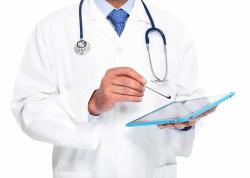Nowadays people use email to send and receive messages and share information–some of them very important. Businesses utilize email to promote their products and services as well.
 We rarely give thought to the possibility of eavesdropping or to the threat of information loss via email simply because email so ubiquitous.
We rarely give thought to the possibility of eavesdropping or to the threat of information loss via email simply because email so ubiquitous.
- Nowadays people use email to send and receive messages and share information–some of them very important. Nowadays people use email to send and receive messages and share information–some of them very important. Businesses utilize email to promote their products and services as well.
- Ordinary email vs. private social networking for healthcare: What is better and why?
- Our Verdict:
Generally email is considered safe for sharing and private messaging. However, at times sending important information such as patient information via email could be dangerous.
So, is it OK to share patient information and use email for private messaging to patients?
While sending patient information online is OK, sharing it over insecure email cannot be said to be right—email is not as secure as it is generally considered. There are instances of privacy breaches and sending patients’ private data over email could be devastating.
This does not mean we should stop using email. It’s not possible, neither practical. We have been using it for decades and will be using it in future. The point is; we need a more secure platform when it comes to health related sharing and private messaging.
Sending personal health information needs a secure messaging system. Thankfully, there are several health-related platforms that are exclusively designed for secure sharing and private messaging among healthcare providers and their patients.
Ordinary email vs. private social networking for healthcare: What is better and why?
Legal restrictions apart, as we discussed earlier using the old email for healthcare purpose is insecure and inefficient. How?
Ordinary email:
Ordinary email is not secure-none of the email service providers can guarantee optimum security. When you send or share patients’ private health information over an insecure email, chances are the security of user information may be compromised at any time. It had happened many times in past and whether we like it or not, will happen in future.
Almost every email service user is the victim of spam and unsolicited messages. This cannot be ignored as far as the patients are concerned. In fact it’s a serious issue. Patients require relevant and correct messages about their diseases and not spam mails.
Traditional email is not efficient as well. Doctors and nurses are usually busy creators and overwhelmed at work and such unsolicited messages will just distract them that may lead to hamper service delivery process.
With the ordinary email patients cannot selectively share concerns and information with caregivers and other patients and be certain that the information will not be forwarded or disclosed. In addition – email is very unstructured and a terrible tool for collaboration, which is why email is now out and social is now in for millions of users world-wide from large corporations like J&J and small independent developers on Github.
Private social networking for healthcare
Contrary to traditional email, health-related social networks are specifically designed apps for health care sector only and guarantee patients’ privacy protection.
On healthcare social networks patients’ private health information is safe and not available for public. There are no spam mails to disturb and distract you either. You receive messages from the people you allowed doing so.
These apps/networks are not just for sending and receiving messages. These allow interaction via safe and secure sharing and private messaging. You create groups, share information, discuss your concerns and get advice and solutions from doctors and other people.
Our Verdict:
With such benefits we can safely say that integrated private messaging and sharing has a clear edge over public tools such as Gmail and Google Drive when it comes to doctor-patient communication.
Hope this helps you pick the best option for sharing and private messaging with your patients.
Let us know your point of view. Thanks.
(Doctors and email / shutterstock)






